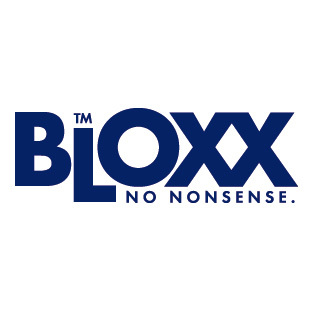A new research report issued by Bloxx, a leader in Web content filtering and security, has found that 68% of the UK’s education organisations are facing an ongoing battle with anonymous proxies. For 54% of organisations, anonymous proxies were considered to be a minor problem, but 14% classified them as either a fairly serious or major problem.
Of those surveyed, one in three stated that their greatest concern was that by using anonymous proxies, which allow individuals to easily bypass filtering controls and access any website, students could be exposed to inappropriate content. 21% were worried that anonymous proxies posed an increased risk to their networks and a further 7% believed that they could lead to confidential information being stolen. There were also concerns about students being distracted. 21% stated that they worried about students being able to access games and other content, whilst an additional 18% feared that anonymous proxies could lead to lost student productivity.
36% of organisations felt that managing anonymous proxies had become better in the last year. However, 43% stated that there had been no change in their ability to manage anonymous proxies and 21% felt that their ability to manage anonymous proxies had deteriorated.
Charles Sweeney, CEO, Bloxx, commented: “The Web is amazing. It has the power to transform how our children interact with and learn about the world around them. But it also has a darker element and regardless of whether a child is five or 18, education organisations have a duty of care to protect students from inappropriate content.”
“This is no easy task as every day thousands of new anonymous proxies are launched, leaving schools, colleges and their students susceptible. Students might well use anonymous proxies to access seemingly innocent sites, but the ramifications of doing so can be anything from online solicitation and bullying of students through to creating a backdoor for malware or hackers. Given the sensitivity of the data on a schools network, anonymous proxies pose a very real and serious risk,” he continued.
The survey of 185 IT professionals working in Education Authorities, Primary, Secondary Schools and Colleges across the UK was part of a wider study by Bloxx that examined the impact of anonymous proxies in educational organisations both in the UK and US. British respondents revealed that it took 68% of organisations a few hours to find and block new anonymous proxies, 11% a day, 15% a few days and 6% a week or more. Alongside this, concern was also expressed about the relatively poor knowledge of teaching staff about the risks posed by anonymous proxies. Just 11% of respondents stated that they felt teaching staff completely understood what an anonymous proxy was and the risks posed. Almost a fifth (16%) stated that teaching staff had no knowledge of what proxies were. In addition 43% said that teaching staff had very little understanding about the issue, 23% thought staff had a ‘basic’ knowledge of anonymous proxies and 7% considered staff to know what anonymous proxies were, but did not understand the implications.
Sweeney continued: “A lack of awareness amongst teaching staff is a cause for serious concern. If teachers and lecturers don’t understand the risks then they could be unwittingly exacerbating the situation and failing to protect students from a whole host of online nasties. In all matters relating to security, humans are often the weakest link. There is a real need to educate all members of staff about how to keep children safe online. The knowledge chasm identified by respondents combined with the fact that schools and colleges are unable to respond in real time to online threats, creates a gaping hole in their online security. A few hours to find and manage a new anonymous proxy might not sound like a lot, but given that young people are involved and the sensitivity of data held by schools and colleges it is a significant and unacceptable length of time during which an organisation’s network, IT infrastructure and its students are vulnerable.”
A full copy of the report can be downloaded at get.bloxx.com/ap2014
About Bloxx
 Bloxx offers Web and email filtering and security for medium and large organizations in both the business and public sectors. Bloxx has achieved unrivalled sales growth year-on-year to become a leading Web filtering provider with an estimated 6 million+ users worldwide. To find out more about Bloxx content filtering and security email info@bloxx.com or visit www.bloxx.com.
Bloxx offers Web and email filtering and security for medium and large organizations in both the business and public sectors. Bloxx has achieved unrivalled sales growth year-on-year to become a leading Web filtering provider with an estimated 6 million+ users worldwide. To find out more about Bloxx content filtering and security email info@bloxx.com or visit www.bloxx.com.
The opinions expressed in this post belongs to the individual contributors and do not necessarily reflect the views of Information Security Buzz.



